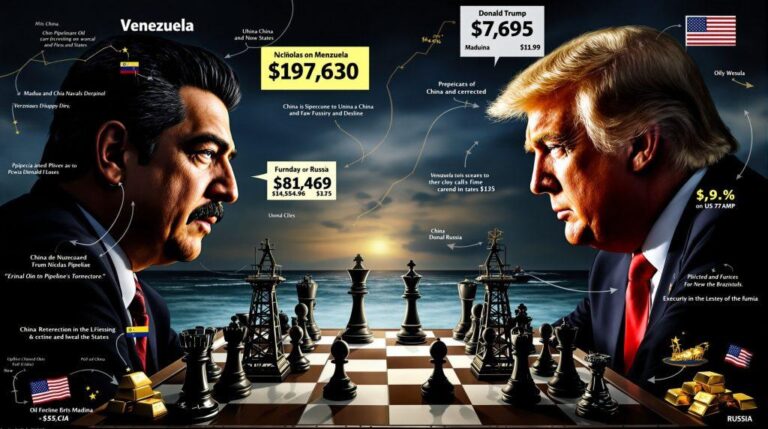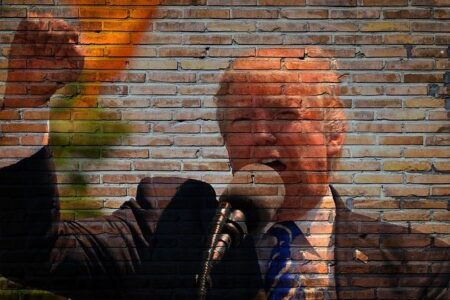In a startling revelation that underscores the intensifying geopolitical tensions in Latin America, Venezuelan President Nicolás Maduro has reportedly extended an unprecedented offer to the United States: access to his nation’s vast natural resources in exchange for a halt to escalating conflicts. According to The New York Times, this overture marks a important shift in Venezuela’s diplomacy amid ongoing economic sanctions and political isolation. The move highlights the complexities of U.S.-Venezuela relations and raises critical questions about the future of regional stability in a country long defined by turmoil and abundance.
Maduro’s Proposal Signals a Shift in Venezuela-U.S. Relations
In an unexpected move that may redefine decades of geopolitical tension, Nicolás Maduro has extended an olive branch to the United States by offering access to Venezuela’s vast natural resources. This gesture is not merely a diplomatic overture; it signals a strategic recalibration aimed at deterring further conflict and fostering potential economic collaboration. Maduro’s proposal includes shared exploitation rights over oil reserves, minerals, and rare earth elements, which are among the most abundant on the planet. Such a proposal could alter the landscape of international energy markets while addressing critical fiscal challenges facing Venezuela.
Analysts note several key components within Maduro’s proposition:
- Joint ventures between U.S.corporations and Venezuelan state enterprises
- A promise of stability and protection for foreign investments
- Commitment to gradually lifting sanctions contingent upon progress
This deal, if embraced, has the potential to unlock significant economic benefits for both nations, reduce diplomatic friction, and perhaps open avenues for broader cooperation on regional security and humanitarian issues.However, critics caution that the success of this initiative depends heavily on political will, clarity, and mutual trust – factors that have historically proven elusive in Venezuela-U.S. relations.
Analysis of Venezuela’s Resource Wealth as Leverage in Diplomacy
Venezuela’s abundant natural resources have long been at the crux of its geopolitical strategy. Under President Nicolás Maduro, the government has sought to wield its oil reserves, mineral wealth, and energy capabilities as pivotal instruments in negotiating with global powers, particularly the United States. This strategic leveraging aims to offset international sanctions and political isolation by proposing resource-based cooperation to ease tensions and foster economic interdependence. Such overtures highlight the regime’s awareness that control over one of the world’s largest oil reserves remains its most formidable bargaining chip on the international stage.
Key elements of Venezuela’s resource diplomacy include:
- Oil Exports: Offering increased production and favorable contracts to U.S. companies in exchange for sanction relief.
- Mineral Access: Proposing joint ventures in gold and coltan mining to attract foreign investment and technology partnerships.
- Energy Collaboration: Suggesting shared infrastructure projects aimed at regional energy integration and stability.
| Resource | Estimated Reserves | Potential Diplomatic Impact |
|---|---|---|
| Crude Oil | 300 billion barrels | High leverage for sanction negotiations |
| Gold | 10,000 tons | Attracts foreign investment |
| Natural Gas | 5.3 trillion cubic feet | Energy security collaboration |
Potential Economic and Political Implications for Both Nations
Should the United States accept Venezuela’s offer to access its vast natural resources, the economic landscape for both nations could shift dramatically.For Venezuela, this could translate into a much-needed influx of capital, potentially reviving its struggling economy and stabilizing its currency. The U.S.,conversely,might secure a strategic advantage by diversifying its energy sources,reducing reliance on other foreign suppliers,and enhancing its geopolitical influence in Latin America.
Politically, the ramifications are equally profound. A rapprochement could ease escalating tensions and open channels for dialogue, leading to improved diplomatic relations after years of sanctions and mutual distrust. Yet, skepticism remains, with critics warning this deal could legitimize Maduro’s controversial regime and complicate U.S. commitments to human rights and democracy in the region. Both nations find themselves at a crossroads, balancing economic pragmatism against ideological convictions.
- Venezuela’s Gains: Economic stabilization, increased foreign investment, global reintegration
- U.S. Benefits: Energy diversification, geopolitical leverage, regional influence
- Concerns: Ethical dilemmas, regime legitimization, domestic political backlash
| Aspect | Potential Outcome |
|---|---|
| Economic Impact on Venezuela | Boost in GDP & job creation |
| U.S. Energy Security | Reduced import dependency |
| Political Relations | Possible diplomatic thaw |
| Human Rights Concerns | International scrutiny intensified |
Recommendations for U.S. Policy to Navigate Complex Negotiations
To effectively engage with Venezuela amid its ongoing political and economic turmoil, U.S. policymakers must adopt a strategy rooted in pragmatism and mutual interest.Prioritizing diplomatic channels over coercive measures can open pathways to sustainable agreements, especially when considering Venezuela’s offer of resource sharing to avoid conflict. Emphasizing trust-building initiatives, including transparent dialogue and incremental lifting of sanctions, can induce cooperation without undermining U.S. strategic goals.
Furthermore, policy must be adaptable to Venezuela’s internal complexities, requiring nuanced approaches such as:
- Targeted Economic Incentives: Enable development projects benefiting vulnerable populations to create goodwill.
- Multilateral Engagement: Collaborate with regional partners to legitimize negotiations and share diplomatic burdens.
- Protecting Human Rights: Insist on measurable improvements, leveraging aid and investment as conditional tools.
| Policy Focus | Strategic Benefit | Implementation Challenge |
|---|---|---|
| Diplomatic Engagement | Reduces tensions, opens dialogue | Requires mutual trust, slow progress |
| Economic Incentives | Fosters long-term stability | Risk of misuse by corrupt actors |
| Human Rights Conditioning | Promotes accountability | May stall if demands are unmet |
| Regional Partnerships | Broadens legitimacy and resource pool | Diverse agendas complicate consensus |
The Way Forward
In offering Venezuela’s vast natural resources as leverage to avert confrontation, President Nicolás Maduro has underscored the high stakes and complex dynamics shaping U.S.-Venezuela relations. As both nations navigate a fraught geopolitical landscape marked by economic turmoil and diplomatic tensions, the outcome of these negotiations will carry significant implications not only for Venezuela’s future but for regional stability as a whole. The unfolding developments warrant close scrutiny as policymakers weigh the prospects for engagement amid enduring challenges.




